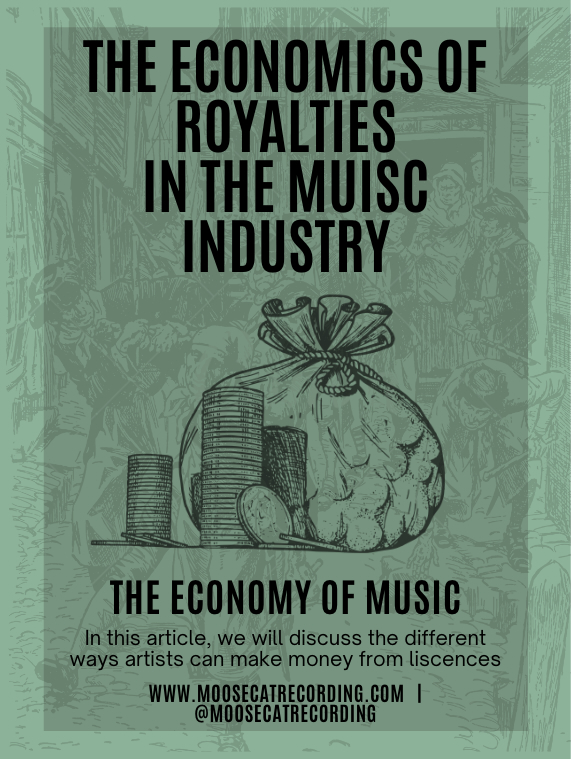The Economics of Royalties in the Music Industry

The Economics of Royalties in the Music Industry
Royalties play a role in the music industry serving as a source of income for artists, songwriters, producers, and those who hold rights to the music. This article delves into the mechanisms of royalties, and the significance and the modern-day challenges they encounter.
Understanding Royalties
Royalties represent compensation for the use of property. In the realm of music, they encompass:
- Mechanical Royalties: Paid to songwriters and publishers when a song is reproduced or distributed.
- Performance Royalties: Earned when a song is played publicly, collected by Performing Rights Organizations (PROs).
- Synchronization (Sync) Royalties: Paid when a song is used in visual media.
- Print Royalties: From the sale of sheet music.
Economics of Royalties
Royalty structures differ depending on the contractual agreements;
- Physical Sales and Digital Downloads: Predetermined sums are allocated to songwriters and publishers with labels and artists sharing in the proceeds.
- Streaming Services: Platforms pay based on their total revenue, distributed by the number of streams. The payouts per stream are typically very low.
- Public Performances: PROs levy fees on venues and broadcasters which are then disseminated to rights holders.
- Sync Licenses: Negotiated individually, often resulting in one-time payments.
Modern Challenges
In today’s world, we face several obstacles:
- Low Streaming Payouts: Per-stream payouts are often insufficient, prompting calls for higher rates.
- Complex Rights Management: Digital platforms require sophisticated systems for fair royalty distribution.
- Piracy: Unauthorized distribution deprives rights holders of royalties.
The Future of Royalties
To tackle these issues the industry is exploring technology for royalty tracking and pushing for legislative changes like the Music Modernization Act to update copyright laws.
Conclusion
Royalties play a role in supporting the music sector. Embracing technologies and promoting practices in response to digital challenges is vital, for ensuring equitable compensation and the ongoing success of the industry.
